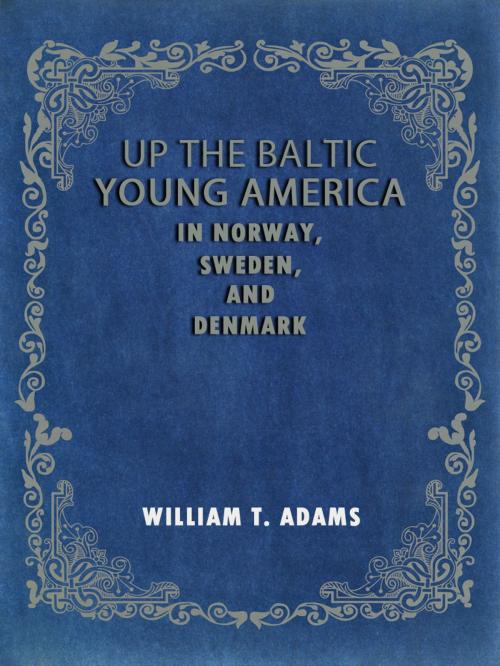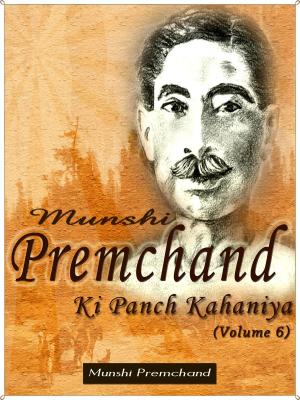Up The Baltic Young America In Norway Sweden And Denmark
Fiction & Literature, Action Suspense, Classics, Literary| Author: | Oliver Optic (William Taylor Adams) | ISBN: | 1230000239408 |
| Publisher: | AppsPublisher | Publication: | May 17, 2014 |
| Imprint: | Language: | English |
| Author: | Oliver Optic (William Taylor Adams) |
| ISBN: | 1230000239408 |
| Publisher: | AppsPublisher |
| Publication: | May 17, 2014 |
| Imprint: | |
| Language: | English |
Up The Baltic Young America In Norway Sweden And Denmark
by Oliver Optic (William Taylor Adams)
Up the Baltic, the first volume of the second series of “Young America Abroad,” like its predecessors, is a record of what was seen and done by the young gentlemen of the Academy Squadron on its second voyage to Europe, embracing its stay in the waters of Norway, Sweden, and Denmark. Agreeably to the announcement made in the concluding volume of the first series, the author spent the greater portion of last year in Europe. His sole object in going abroad was to obtain the material for the present series of books, and in carrying out his purpose, he visited every country to which these volumes relate, and, he hopes, properly fitted himself for the work he has undertaken.
In the preparation of Up the Baltic, the writer has used, besides his own note-books, the most reliable works he could obtain at home and in Europe, and he believes his geographical, historical, and political matter is correct, and as full as could be embodied in a story. He has endeavored to describe the appearance of the country, and the manners and customs of the people, so as to make them interesting to young readers. For this purpose these descriptions are often interwoven with the story, or brought out in the comments of the boys of the squadron.
The story is principally the adventures of the crew of the second cutter, who attempted “an independent excursion without running away,” which includes the career of a young Englishman, spoiled by his mother’s indulgence, and of a Norwegian waif, picked up by the squadron in the North Sea.
The author is encouraged to enter upon this second series by the remarkable and unexpected success which attended the publication of the first series. Difficult as it is to work the dry details of geography and history into a story, the writer intends to persevere in his efforts to make these books instructive, as well as interesting; and he is confident that no reader will fail to distinguish the good boys from the bad ones of the story, or to give his sympathies to the former.
About The Author :-
William Taylor Adams, American author better known and loved by boys and girls through his pseudonym Oliver Optic, was born July 30, 1822 in the town of Medway, Norfolk County, Massachusetts, about twenty-five miles from Boston.
After his first book Hatchie, the Guardian Slave brought only modest success, his next attempt, which was a collection of stories, was more successful. He then completed a book in 1855 for boys called The Boat Club. This book was so well received he followed it with five more in the Boat Club Series, after which many other series quickly followed.
Extensive travel abroad and the events of the Civil War, along with his personal knowledge and experience with boats, farming and practical mechanics, provided William massive quantities of material for his works, and nothing could stop his writing. Over a million copies of his books, alone, were sold. His motto in writing was "First God, then Country, then Friends."
Mr. Adams writing ceased only when death came quietly in his home in Dorchester (Boston) on March 27, 1897 at the age of seventy-five. His works, however, live on throughout time, with many continuing to be republished even to this day.
Up The Baltic Young America In Norway Sweden And Denmark
by Oliver Optic (William Taylor Adams)
Up the Baltic, the first volume of the second series of “Young America Abroad,” like its predecessors, is a record of what was seen and done by the young gentlemen of the Academy Squadron on its second voyage to Europe, embracing its stay in the waters of Norway, Sweden, and Denmark. Agreeably to the announcement made in the concluding volume of the first series, the author spent the greater portion of last year in Europe. His sole object in going abroad was to obtain the material for the present series of books, and in carrying out his purpose, he visited every country to which these volumes relate, and, he hopes, properly fitted himself for the work he has undertaken.
In the preparation of Up the Baltic, the writer has used, besides his own note-books, the most reliable works he could obtain at home and in Europe, and he believes his geographical, historical, and political matter is correct, and as full as could be embodied in a story. He has endeavored to describe the appearance of the country, and the manners and customs of the people, so as to make them interesting to young readers. For this purpose these descriptions are often interwoven with the story, or brought out in the comments of the boys of the squadron.
The story is principally the adventures of the crew of the second cutter, who attempted “an independent excursion without running away,” which includes the career of a young Englishman, spoiled by his mother’s indulgence, and of a Norwegian waif, picked up by the squadron in the North Sea.
The author is encouraged to enter upon this second series by the remarkable and unexpected success which attended the publication of the first series. Difficult as it is to work the dry details of geography and history into a story, the writer intends to persevere in his efforts to make these books instructive, as well as interesting; and he is confident that no reader will fail to distinguish the good boys from the bad ones of the story, or to give his sympathies to the former.
About The Author :-
William Taylor Adams, American author better known and loved by boys and girls through his pseudonym Oliver Optic, was born July 30, 1822 in the town of Medway, Norfolk County, Massachusetts, about twenty-five miles from Boston.
After his first book Hatchie, the Guardian Slave brought only modest success, his next attempt, which was a collection of stories, was more successful. He then completed a book in 1855 for boys called The Boat Club. This book was so well received he followed it with five more in the Boat Club Series, after which many other series quickly followed.
Extensive travel abroad and the events of the Civil War, along with his personal knowledge and experience with boats, farming and practical mechanics, provided William massive quantities of material for his works, and nothing could stop his writing. Over a million copies of his books, alone, were sold. His motto in writing was "First God, then Country, then Friends."
Mr. Adams writing ceased only when death came quietly in his home in Dorchester (Boston) on March 27, 1897 at the age of seventy-five. His works, however, live on throughout time, with many continuing to be republished even to this day.















